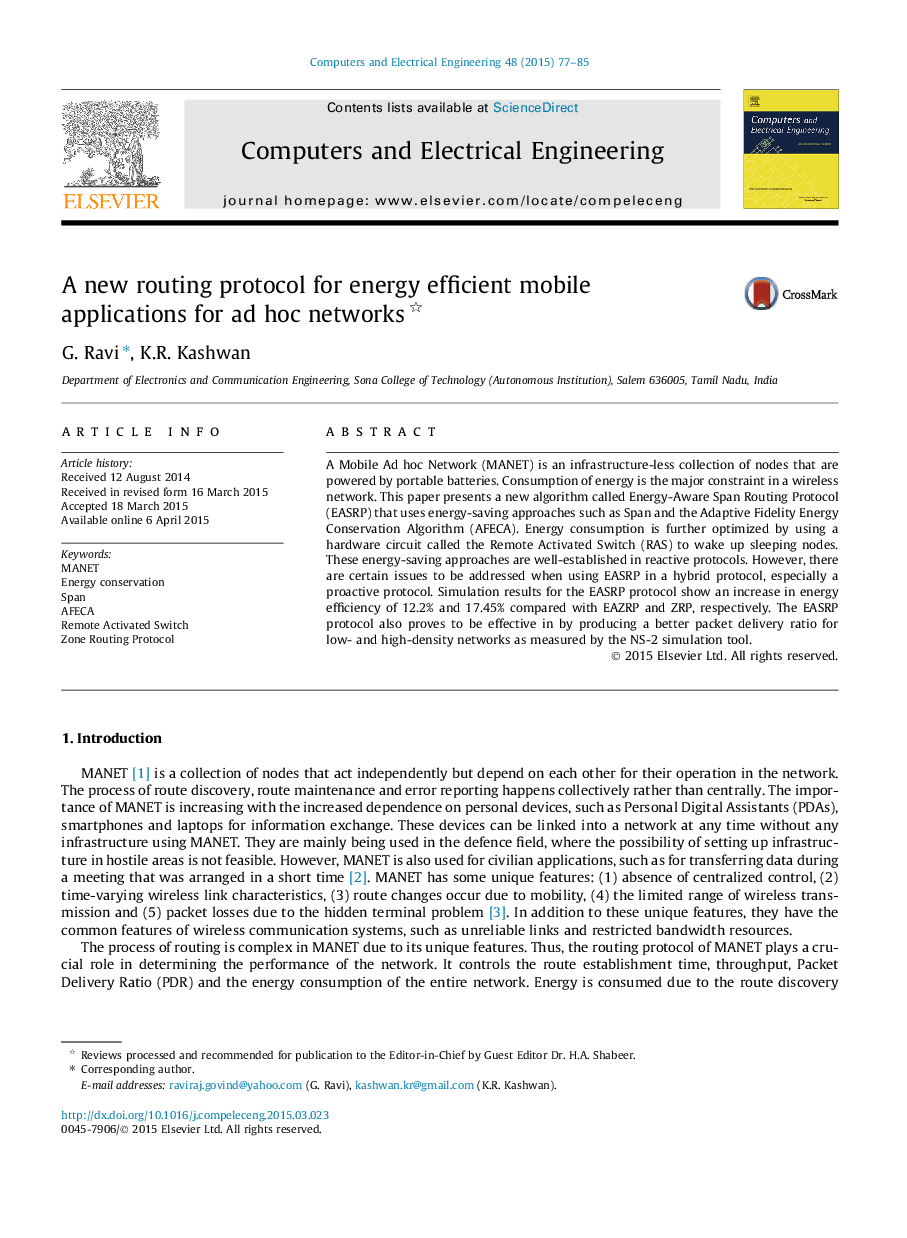| Article ID | Journal | Published Year | Pages | File Type |
|---|---|---|---|---|
| 455150 | Computers & Electrical Engineering | 2015 | 9 Pages |
•A new Energy-Aware Span Routing Protocol (EASRP) for wireless ad hoc networks is proposed.•Proposed protocol can minimize utilization of energy source by combining energy saving approaches Span and AFECA.•It uses the Remote Activated Switch and wakes up the sleeping nodes during inactive time for reduce latency problem.•The performance parameter of proposed protocol is tested under Network Simulator-2.
A Mobile Ad hoc Network (MANET) is an infrastructure-less collection of nodes that are powered by portable batteries. Consumption of energy is the major constraint in a wireless network. This paper presents a new algorithm called Energy-Aware Span Routing Protocol (EASRP) that uses energy-saving approaches such as Span and the Adaptive Fidelity Energy Conservation Algorithm (AFECA). Energy consumption is further optimized by using a hardware circuit called the Remote Activated Switch (RAS) to wake up sleeping nodes. These energy-saving approaches are well-established in reactive protocols. However, there are certain issues to be addressed when using EASRP in a hybrid protocol, especially a proactive protocol. Simulation results for the EASRP protocol show an increase in energy efficiency of 12.2% and 17.45% compared with EAZRP and ZRP, respectively. The EASRP protocol also proves to be effective in by producing a better packet delivery ratio for low- and high-density networks as measured by the NS-2 simulation tool.
Graphical abstractFigure optionsDownload full-size imageDownload as PowerPoint slide
